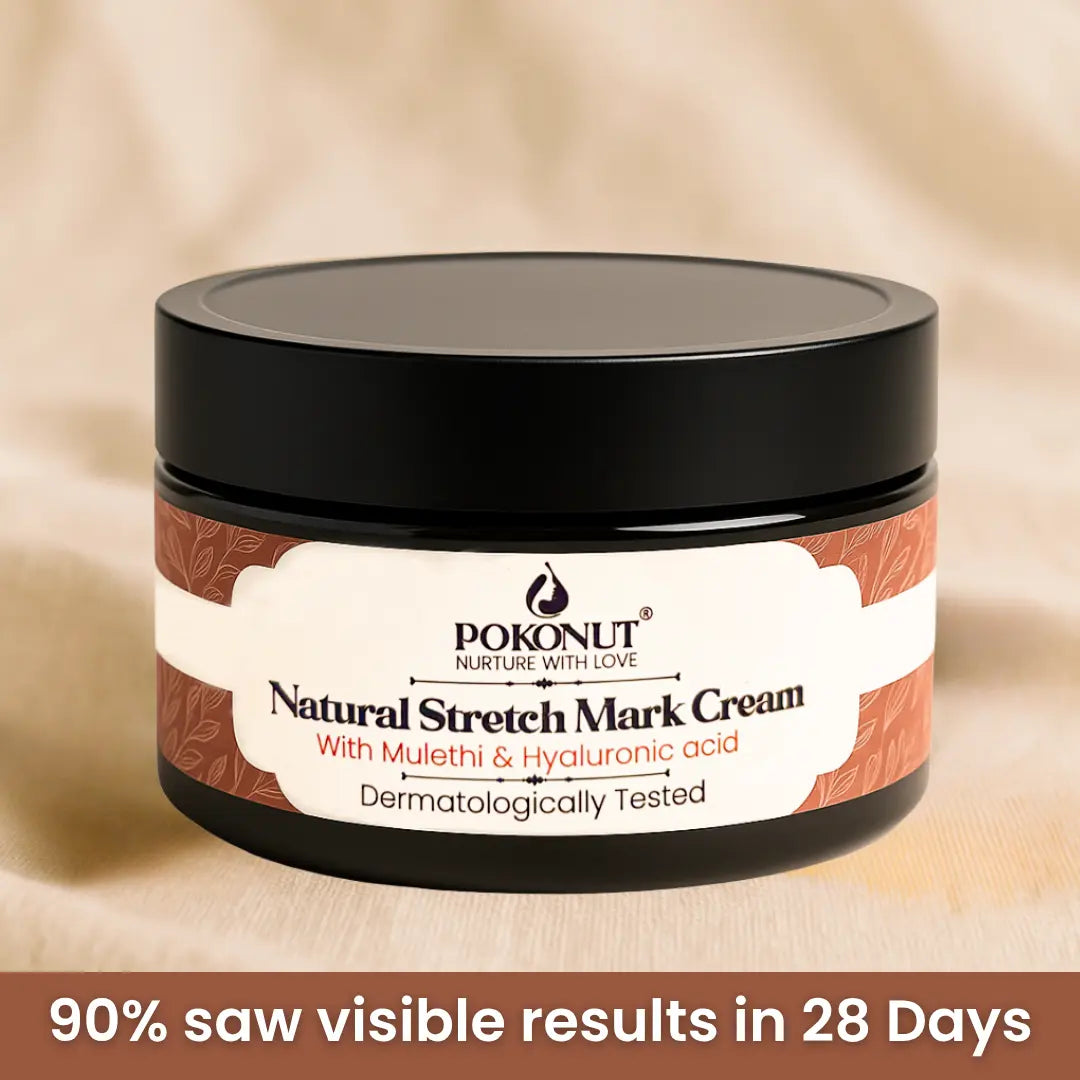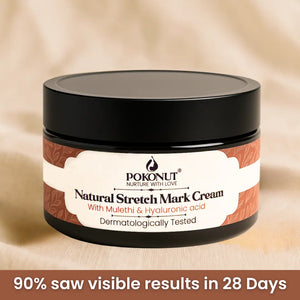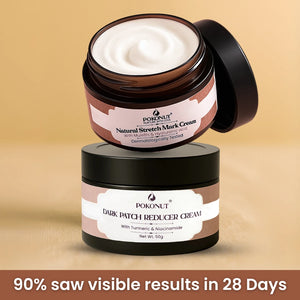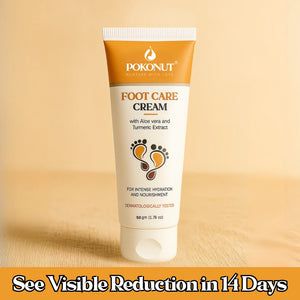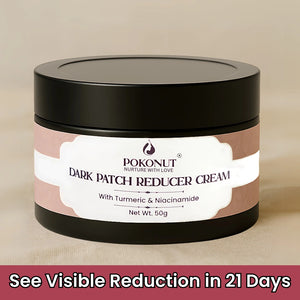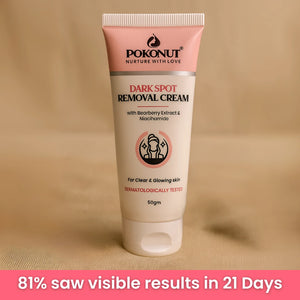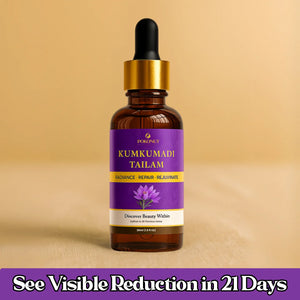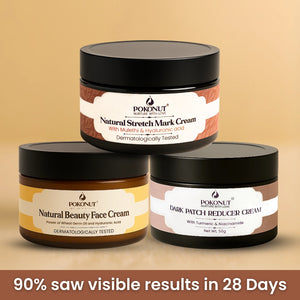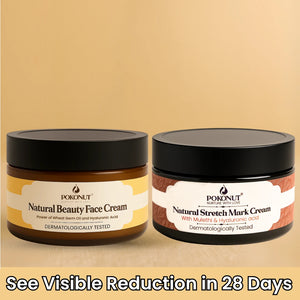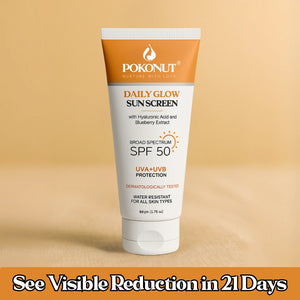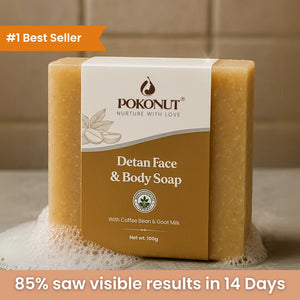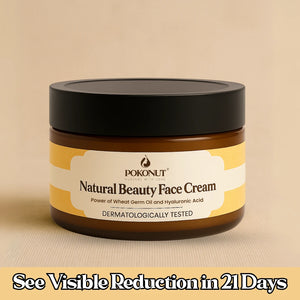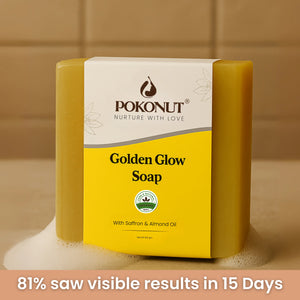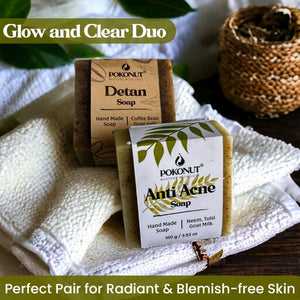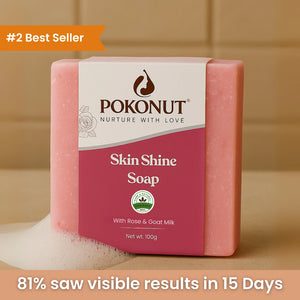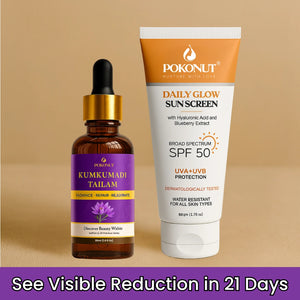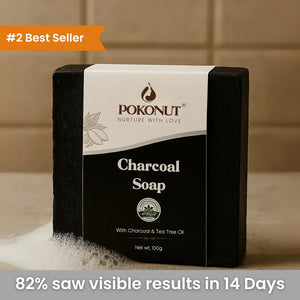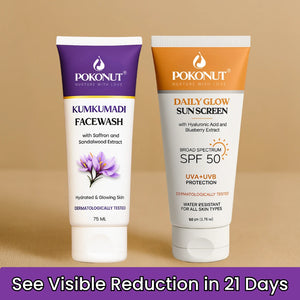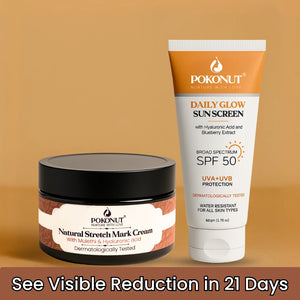Why You Need a Specific Cream for Stretch Marks During Pregnancy

Medically Reviewed By:
Dr. Mousumi Dash, BAMS
Written by Our Editorial Team
During pregnancy, the body undergoes rapid physical and hormonal changes—especially in the skin. As the belly, breasts, hips, and thighs stretch to accommodate a growing baby, the skin's elasticity is pushed to its limits. This is why a stretch marks cream during pregnancy isn't just a nice-to-have—it’s a skincare essential designed for a very specific need.
Generic body lotions or regular stretch mark products may not be safe or effective for use during pregnancy. The skin at this stage requires targeted care with safe, nourishing ingredients that work with the body, not against it.
Why Regular Stretch Mark Creams Fall Short
Not all creams are created equal. Many over-the-counter stretch mark products are formulated for general skin concerns such as weight gain, weight loss, or bodybuilding—not the unique needs of pregnancy.
Here’s a comparison between general creams and pregnancy-specific formulations:
|
General Stretch Mark Creams |
Stretch Marks Cream During Pregnancy |
|
May contain retinoids, parabens, or alcohol |
Free from harmful chemicals and tested for safety in pregnancy |
|
Often heavily fragranced |
Mild, natural scents or fragrance-free for sensitive skin |
|
Focus on repair after the fact |
Designed for prevention and deep hydration during skin stretching |
|
Not formulated for sensitive skin |
Created to support hormonal and sensitivity changes in pregnant skin |
Choosing a product specifically formulated for pregnancy ensures that the skin is supported safely throughout every trimester.
The Unique Needs of Pregnancy Skin
Pregnancy changes everything—including how the skin behaves. Hormonal shifts increase skin sensitivity, reduce collagen levels, and create a higher risk for both stretch marks and irritation. That’s why a pregnancy-safe moisturizer must go beyond basic hydration.
A well-formulated stretch marks cream during pregnancy should:
-
Enhance skin elasticity
-
Prevent excessive dryness and itching
-
Support collagen production
-
Nourish the skin barrier
-
Avoid ingredients that may affect fetal development
The right product provides comfort during pregnancy and supports long-term skin health.
Ideal Timing for Application
Stretch marks often begin forming before they are visible, deep within the dermis. Preventative care is most effective when started early and maintained consistently.
Suggested routine:
-
First Trimester: Apply twice daily to belly, breasts, and lower back
-
Second Trimester: Expand coverage to hips, thighs, and buttocks
-
Third Trimester: Maintain twice-daily use and continue postpartum to aid skin recovery
Key Ingredients to Look For
A safe and effective stretch marks cream during pregnancy should focus on nourishing, plant-based ingredients known to support skin elasticity and regeneration.
Recommended ingredients include:
-
Shea Butter: Rich in fatty acids and vitamins to moisturize and soften skin
-
Coconut Oil: Natural anti-inflammatory and antimicrobial; deeply hydrating
-
Vitamin E: Promotes healing and supports skin repair
-
Aloe Vera: Soothes irritated skin and promotes hydration
-
Jojoba Oil: Mimics skin’s natural oils for long-lasting moisture
-
Centella Asiatica (Gotu Kola): Stimulates collagen and improves skin firmness
These ingredients work in harmony to maintain skin health without exposing the body to unnecessary chemical stressors.
Pokonut’s stretch marks cream during pregnancy is formulated with these essentials—crafted for safety, comfort, and performance.
Importance of Clean, Safe Formulations
Pregnancy-safe skincare isn't just a trend—it's a necessity. The skin is more permeable during pregnancy, which means anything applied topically has a greater chance of entering the bloodstream. That makes clean formulations a non-negotiable.
Avoid creams that contain:
-
Retinoids (often labeled as retinol or Retin-A)
-
Salicylic acid
-
Parabens
-
Phthalates
-
Synthetic dyes or fragrances
Instead, opt for products made with transparency and simplicity. A natural stretch mark treatment should only contain ingredients that are safe for both the mother and the developing baby.
How the Right Cream Supports Confidence and Comfort
Stretch marks are a natural part of pregnancy for many women. While they are nothing to be ashamed of, it’s also valid to want to feel confident and comfortable in one’s skin. A high-quality belly cream for pregnancy provides more than just prevention—it supports daily self-care, eases discomfort, and helps maintain skin integrity during a time of rapid transformation.
A Trusted Recommendation
The Pokonut Natural Stretch Mark Cream is designed specifically for pregnancy. This product:
-
Contains no parabens, mineral oils, or harmful preservatives
-
Features plant-based ingredients like shea butter, aloe vera, and vitamin E
-
Is suitable for all skin types, including sensitive skin
-
Is safe for use during breastfeeding
It is a gentle, effective solution developed with expecting mothers in mind.
Wellness Tip: It’s Not Just What Goes On the Skin
Pregnancy care is holistic. What’s applied to the skin matters—but so does what’s consumed. Curious about lifestyle choices during pregnancy? Read this related post: Is Coffee Good for Pregnancy?
Final Thoughts
Choosing the right stretch marks cream during pregnancy is about prioritizing safety, comfort, and skin health. The skin deserves support during this remarkable phase, and a specialized cream can make a significant difference in how it feels and looks both during and after pregnancy.
Opt for formulations created with purpose. Avoid products with questionable ingredients. And commit to a routine that supports not just appearance, but overall well-being.
Frequently Asked Questions
1. Why is a specific stretch mark cream needed during pregnancy?
Answer: Pregnancy-specific creams are formulated without harmful ingredients like retinoids and parabens, which can pose risks during pregnancy. These creams also target the unique needs of stretching, sensitive skin.
2. Can regular stretch mark lotion be used instead?
Answer: Regular lotions may lack the safety standards or nourishing components needed for pregnancy. A pregnancy-safe formula ensures better results with no risk of irritation or chemical exposure.
3. When should a stretch marks cream be applied during pregnancy?
Answer: Begin using a stretch marks cream during the first trimester and continue daily throughout pregnancy and postpartum for best results.
4. Are these creams safe for use while breastfeeding?
Answer: Yes, pregnancy-specific creams like Pokonut’s formula are generally safe during breastfeeding. Avoid applying around the nipple area unless the product is labeled as nursing-safe.
5. Will stretch marks completely disappear with consistent use?
Answer: No cream can fully prevent or erase stretch marks, as they are partly genetic. However, regular use can significantly reduce their visibility and improve skin elasticity and comfort.
About Doctor :

